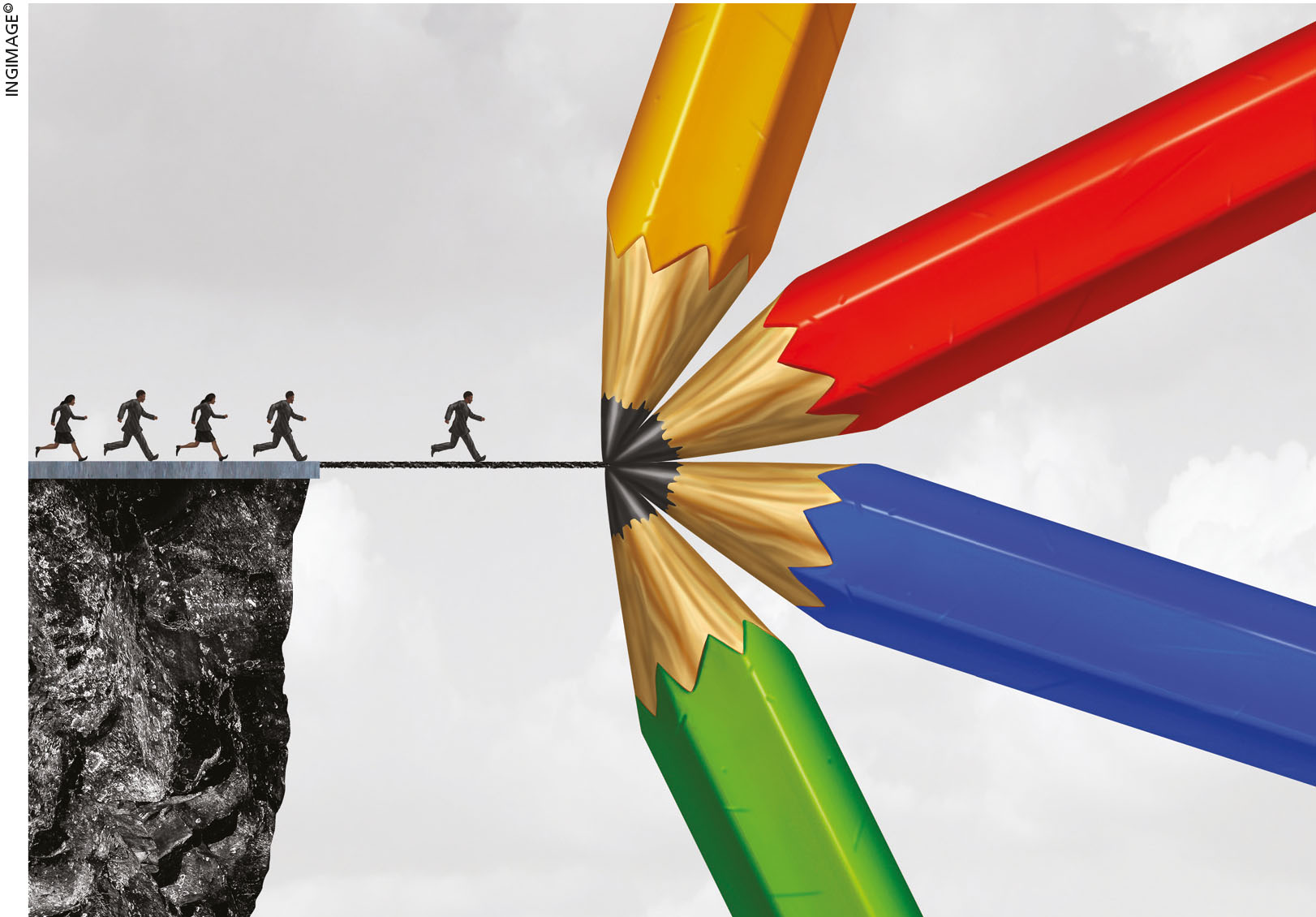INCLUSIVE WORKPLACES
THE DIVERSITY ROLL CALL
Manilka Ediriweera delineates the ‘must dos’ for sustainable development
Diversity and inclusion in the workforce have proved to drive the innovation and performance of companies. Innovation is crucial for an organisation’s success and can be defined as the successful exploitation of new ideas as well as the creation of new products, services and processes.
What began as a matter of regulatory compliance for some organisations has turned into a case of CSR and social justice, which are essential for growth strategy. A firm’s heterogeneity in the available resources – especially its human capital – is one of the greatest assets it can have.
Diversity in the workplace can be defined as the differences between individuals in the organisation and their acceptance regardless of demographic dimensions (gender and age) and cognitive dimensions (education, experience and vocational training).
Having a diverse workforce means access to a wide range of experiences, backgrounds, perspectives and multiple voices. This heterogeneity encourages out-of-the-box thinking, and leads to innovation in the form of new ideas, products, services and processes.
Besides, diversity also improves the company’s knowledge base and interaction between distinct competencies, and creates opportunities for new combinations of knowledge.
Creativity, improved decision making, problem solving and an increase in the organisation’s absorptive capacity are all positive effects of diversity. Studies have shown that companies with gender diversity are more likely to outperform their peers based on financial performance. Meanwhile, organisations with ethnic and cultural diversity are likely to outperform their peers based on profitability.
More importantly, a diverse workforce helps to attract and retain top talent, which eventually helps improve employee satisfaction and commitment, decision making and customer orientation.
Therefore, a diverse workforce will benefit organisations by helping them to react effectively to new customer demands and market shifts while being respectful of the varied cultures of their stakeholders. This suggests that a heterogeneous workforce not only provides the organisation with a unique character but also delivers a competitive advantage and the perspective necessary to power innovative strategies.
A workplace culture where employees are treated respectfully, and afforded equal opportunities and a sense of belonging, can be described as an ‘inclusive workplace.’ Merely promoting diversity isn’t enough because inclusion is what ensures that diversity is appreciated.
Similar to how diversity drives innovation and performance, inclusive workforces also promote innovation and drive growth.
Inclusive policies focus on individual experience and create a workplace where employees are empowered to thrive. These policies also help to minimise or eliminate social categorisation, and build a safe space for workers where they can generate and share creative ideas.
In many organisations, priorities such as diversity and inclusion focus on retaining and developing talent, ensuring diversity in the workplace, creating a robust pipeline of diverse talent and managing cross generational issues. While this is a good start, it’s crucial to focus on all aspects of diversity and inclusion.
Building an organisational culture that’s diverse and inclusive isn’t easy, and it will take many years for the enterprise to reap the benefits of such practices. However, regardless of the challenges and difficulties, it’s critical that companies implement such policies – especially in this sophisticated, competitive and complex environment.
Organisations no longer need view these policies as separate from their business practices and instead, integrate them into their strategies. For successful implementation of these strategies, the involvement of the entire organisation from the lower to upper levels is necessary.
Inclusion and diversity strategies that are coordinated with the overall business strategies will form the foundation upon which leaders can drive progress and value creation.
Among the ways that an inclusive and diverse culture will contribute to an organisation’s performance and value creation include the following: helping it win the existing war for top talent; improving the quality of decision making; and enhancing employee satisfaction, customer insight and innovation.
Operating and competing on a large scale, particularly on the global stage, presents organisations with a series of challenges because of the different laws and regulations, languages and cultural barriers. So the best way for organisations to overcome these limitations, and ensure their continued success, is through a diverse and inclusive workforce.





